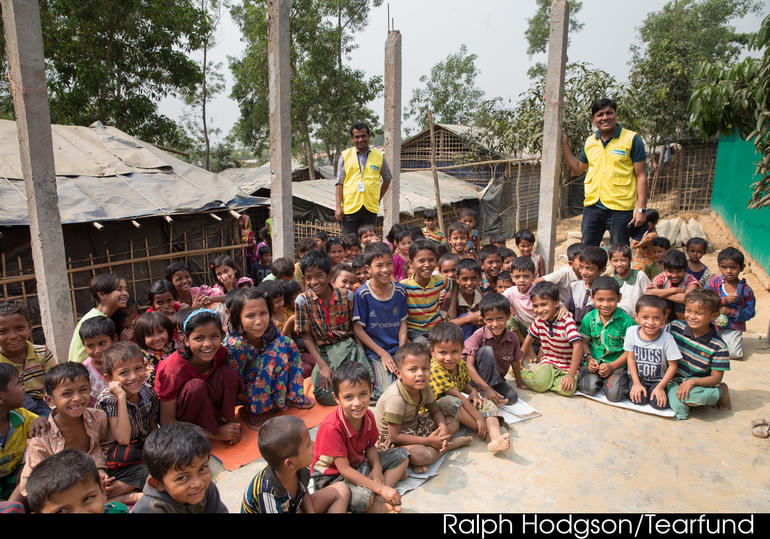Children of school age living in camps around Cox's Bazar have no access to local Bangladeshi schooling so are missing out on formal education as well as the support they need to overcome the trauma of leaving their homes.
'I don't like living here - we don't have our own house, I can't go to school, I have nothing to do,' said 15-year-old Kobir Ahmed.
"I just roam around. I don't feel good, I just feel bored. We don't have freedom here," he added.
Tearfund's Rohingya response manager James Rana said: "Boredom is a real problem, especially for children and adolescents as it can lead them into trouble, so Tearfund's local partners COAST [Coastal Association for Social Transformation Trust] and CCDB [Christian Commission for Development in Bangladesh] have been setting up adolescent clubs which are safe spaces for teenagers to meet, read, play and help them overcome some of the trauma they have experienced, whilst raising awareness on issues such as health and hygiene."
For younger children, COAST and CCDB are providing child-friendly spaces where children can play, draw, write poems, talk to a trained therapist, do informal maths and sing songs together.
Tearfund is also adapting existing materials to make an improved curriculum for young people focussing on life skills, including business and leadership training.
A total of 700-800 children will access the 16 centres built by Tearfund, in groups of around 25-30. In the afternoons, the spaces double up as adult psycho-social centres. The new buildings will also become shelter houses in the event of cyclones, which tend to hit during October and November.
Meanwhile, thousands of Rohingya refugees marked the second anniversary of their exodus from Myanmar into Bangladesh. They staged a rally demanding that Myanmar grant them their citizenship and other rights before they agree to return.
Up to 30,000 joined the rally days after Bangladesh, with the help of the UN refugee agency, attempted to start the repatriation of 3,450 Rohingya Muslims.
Mynamar had scheduled 22 August for the beginning of the process but it failed for a second time after the first attempt last November.
The repatriation deal is based on an understanding that the return has to be "safe, dignified and voluntary".
The refugees also insisted on receiving Myanmar citizenship and other rights, which the Buddhist-majority nation has refused to grant so far.
Stay up to date with the latest news stories from a Christian perspective. Sign up to our daily newsletter and receive more stories like this straight to your inbox every morning.






